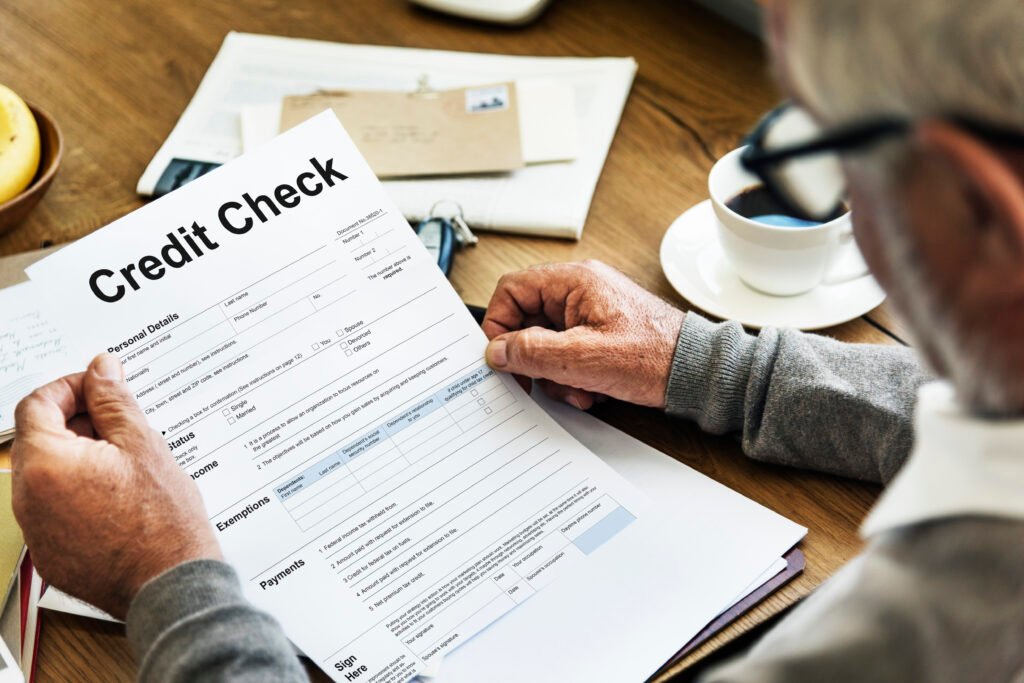How to Refinance with Bad Credit: A Complete Guide to Boost Your Chances
Think you’re stuck with bad credit and that refinancing is out of reach? Think again. Discover practical strategies and expert tips on how to refinance with bad credit, improve your chances, and find better home loan options in Australia. In today’s financial landscape, even borrowers with less-than-perfect credit can find a way to secure a better home loan deal. This article is here to challenge the myth that bad credit means no refinancing options and to equip you with practical, actionable strategies to turn your situation around.
We’ll break down how refinancing works for those with bad credit, explore alternative lenders and government-backed schemes, and outline key steps you can take to improve your chances of approval. Whether you’re looking to reduce your monthly repayments or secure a lower interest rate, our expert guide will help you navigate the refinancing process and work towards a stronger financial future.
Understanding Bad Credit and Its Impact on Refinancing
Bad credit generally refers to a low credit score resulting from factors such as missed payments, high debt levels, or defaults. In Australia, a credit score is one of the key metrics lenders use to gauge your financial reliability. A lower score can make traditional refinancing options more challenging because lenders often view borrowers with bad credit as higher risk.
Common Causes of Bad Credit
- Late or Missed Payments: Failing to pay bills on time can significantly damage your credit history.
- High Debt Levels: Excessive borrowing relative to your income can lead to a poor credit rating.
- Credit Defaults: Defaulting on a loan or credit card can have a long-lasting impact on your credit score.


Challenges in Refinancing with Bad Credit
- Stricter Lending Criteria: Traditional banks may impose higher interest rates or require additional documentation, making the approval process tougher.
- Limited Options: With bad credit, you might have fewer refinancing options available, often with less favourable terms.
- Higher Costs: Some lenders may offset the perceived risk by charging higher fees or interest rates, which could affect the overall savings from refinancing.
Understanding these factors is crucial for developing a strategy that can help you overcome these challenges and secure a refinancing deal that meets your needs. In the next section, we’ll explore how, despite these hurdles, refinancing with bad credit is not only possible but can be a stepping stone towards better financial health.
Can You Refinance with Bad Credit? Yes, and Here’s How
The short answer is yes—Refinancing with bad credit can seem overwhelming, but understanding your options can simplify the process. Specialist lenders, alternative financing options, and even some government-backed schemes are designed to help borrowers with less-than-perfect credit secure better home loan terms. By exploring these options and taking proactive steps to improve your credit, you can access refinancing opportunities that may lower your interest rates and monthly repayments.
Refinancing with Good Credit vs. Bad Credit
Factor |
Refinancing with Good Credit |
Refinancing with Bad Credit |
|---|---|---|
Interest Rates |
Lower, more competitive rates |
Typically higher due to increased risk |
Fees & Charges |
Lower fees and application costs |
Often higher fees to offset risk |
Approval Criteria |
Standard requirements; smoother approval process |
Stricter criteria with additional documentation needed |
Loan Term Flexibility |
More options and flexibility in choosing terms |
Terms may be more restrictive |
Lender Options |
Broad range of mainstream lenders available |
Often require specialist or alternative lenders |
This table summarises the key differences between refinancing options for borrowers with good credit versus those with bad credit, highlighting important factors that impact your refinancing journey.
Curious about how much you could save?
Use our free refinance calculator to see your potential savings, even with bad credit.
Strategies to Improve Your Refinancing Prospects
If you plan to refinance with bad credit, gathering strong documentation will boost your chances.
- Enhance Your Credit Score: Pay down outstanding debts, correct any errors on your credit report, and ensure timely payments to gradually improve your score.
- Gather Comprehensive Documentation: Organise proof of income, assets, and a detailed breakdown of your financial situation to build lender confidence.
- Compare Specialist Lenders: Research and approach lenders who specialise in refinancing for borrowers with bad credit—they often offer more flexible terms.
- Leverage Property Equity: If you have sufficient equity in your home, use it as collateral to secure better refinancing terms.
Implementing these strategies can significantly enhance your refinancing prospects, even with bad credit.
Step-by-Step Process for Refinancing with Bad Credit
Specialist lenders often make it possible to refinance with bad credit and still achieve lower repayments.
1. Prepare Your Finances
Gather all necessary documents including proof of income, a full list of debts, and details of your property equity. This preparation helps build a strong case for lenders.
2. Research Lenders
Identify specialist lenders and alternative financing options that cater to borrowers with bad credit. Compare their terms, fees, and interest rates.
3. Submit Your Application
Complete the application process with detailed and accurate information. Be transparent about your credit history, as honesty can build trust with your lender.
4. Negotiate Terms
If approved, work with your lender to negotiate better interest rates or reduced fees. Your goal is to secure terms that help you save money and improve your repayment schedule.
5. Review and Finalise
Carefully review the refinancing offer, ensuring you understand all terms and conditions before finalising the deal.
Following this clear, step-by-step process can help you navigate refinancing with bad credit confidently, paving the way toward a more manageable and cost-effective home loan.
Tips to Secure a Better Refinancing Deal
- Negotiate Wisely: Don’t be afraid to negotiate with lenders. Ask for lower fees or a better interest rate based on your overall financial improvements.
- Improve Your Financial Profile: Continue making on-time payments and reducing outstanding debt even during the refinancing process to demonstrate reliability.
- Leverage Professional Advice: Consult a mortgage broker or financial advisor who specialises in refinancing for borrowers with bad credit. Their expertise can help you secure more favourable terms.
- Stay Informed: Keep up-to-date with market trends and lender promotions. Sometimes, better deals emerge as market conditions change.
By taking these proactive steps, you can improve your negotiating position and secure a refinancing deal that better suits your financial needs.
Example Scenario: Refinancing with Bad Credit
Imagine Jane, a homeowner with a lower-than-ideal credit score due to a few missed payments in the past. Despite her credit challenges, Jane is determined to reduce her high monthly mortgage repayments.
Financial Preparation
Jane gathers her financial documents, including proof of steady income and a detailed list of her debts, and verifies that her property has sufficient equity.
Research and Application
After researching, she identifies a specialist lender who works with borrowers in her situation. Jane submits a thorough application, highlighting recent improvements in her financial habits.
Negotiation and Approval
The lender approves her application, albeit with a slightly higher interest rate. However, by negotiating and leveraging her home equity, Jane secures a deal with reduced fees and a more manageable repayment schedule.
Outcome
Although the initial offer wasn’t perfect, Jane’s proactive approach leads to a refinancing deal that lowers her monthly repayments and puts her on a path to improve her credit further.
This example shows that with careful preparation, the right lender, and a willingness to negotiate, refinancing with bad credit is achievable and can lead to a significantly improved financial outlook.
Ready to take control of your financial future?
Book a complimentary consultation with our specialists who can guide you through refinancing with bad credit.
Frequently Asked Questions
Yes, refinancing with bad credit is possible. Specialist lenders and alternative financing options exist for borrowers with lower credit scores. The key is to prepare your finances, improve your credit profile, and compare different lenders to find the best deal.
With bad credit, you might face higher interest rates, increased fees, or stricter lending criteria. However, by leveraging property equity and demonstrating improved financial behaviour, you can often negotiate more favourable terms.
- Work on improving your credit score by making timely payments and reducing outstanding debt.
- Organise all necessary financial documents before applying.
- Research specialist lenders who cater to borrowers with bad credit.
- Consider leveraging your property’s equity to strengthen your application.
Refinancing can be beneficial if it leads to lower monthly repayments or a more manageable loan structure, even if the interest rate is slightly higher. It’s important to evaluate the overall terms and potential savings to determine if it’s the right move for your situation.
Refinancing itself doesn’t directly improve your credit score, but maintaining on-time payments and reducing debt after refinancing can gradually lead to better credit over time. Consistent financial discipline is key to long-term improvement.
Refinancing with bad credit can lower your monthly repayments and improve your cash flow by restructuring your loan, even if the interest rate is slightly higher. The new terms may offer reduced fees and a more manageable repayment plan, helping you regain financial stability.
Yes, even if you have several credit issues, specialist lenders are often willing to work with you. They typically take a holistic view of your financial situation, considering factors like income, assets, and overall financial health, not just your credit score. However, you may need to provide detailed documentation and be prepared for a more rigorous assessment.
As with any financial decision, there are risks. These can include higher interest rates, increased fees, and the possibility of extending your loan term if the deal isn’t well structured. It’s important to carefully review all terms and consider consulting a financial advisor to ensure refinancing will genuinely benefit your long-term financial goals.
Lenders will generally ask for:
- Proof of income (such as payslips or tax returns)
- A detailed list of current debts and liabilities.
- Information on your property equity and assets.
- Comprehensive credit history documentation.
Don't Wait, Start Building Equity Today!
Buying now could mean gaining equity and avoiding rising costs.
Mortgage Calculator
Estimated Monthly Payment: $0.00

